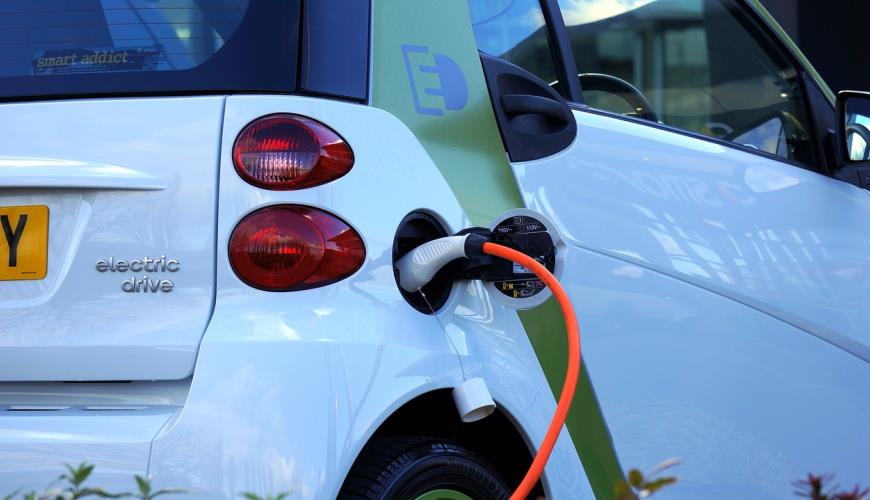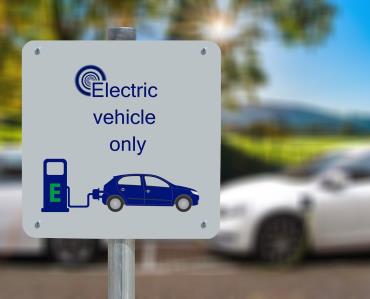UnwantedCars.co.uk Hassle Free, Guaranteed Best Prices.

Combustion engine vehicles, which are powered by petrol or diesel, have been a mainstay of the automotive industry for over a century. However, with growing concerns about air pollution and climate change, many countries are considering phasing out these vehicles in favour of electric or other alternative-fuel vehicles.
Here is a look at the potential impact of phasing out combustion engine vehicles:
Environmental benefits:
One of the main arguments for phasing out combustion engine vehicles is the potential environmental benefits. These vehicles are a major source of air pollution, including carbon dioxide (CO2) emissions, which contribute to climate change. By phasing out these vehicles, it is hoped that air pollution and CO2 emissions could be significantly reduced.
Cost savings:
Phasing out polluting cars could also result in cost savings for individuals and businesses. Electric vehicles (EVs) are generally cheaper to operate than fossil fuel powered vehicles due to lower fuel costs and reduced maintenance. In addition, the production of EVs generates fewer greenhouse gas emissions than the production of combustion vehicles, which could lead to further cost savings.
Job losses:
One potential negative impact of phasing out combustion engine vehicles is job losses in the automotive industry. Many workers are employed in the production, maintenance, and repair of these vehicles, and a shift to EVs could result in job losses for some of these workers.
Infrastructure challenges:
Another challenge of phasing out combustion engine vehicles is the need to build out infrastructure to support EVs. This includes installing charging stations and upgrading the electrical grid to handle the increased demand for electricity.
The phasing out of these vehicles could have significant environmental and economic benefits, but it will also present challenges that will need to be addressed. As the market for alternative-fuel vehicles grows, it is likely that we will see a shift away from combustion engine vehicles in the coming years from more and more countries.
UK plan to ban the sale of new petrol and diesel cars by 2030
In November 2020, the UK government announced plans to ban the sale of new petrol and diesel cars by 2030.
This ambitious goal is part of the government's efforts to reduce emissions and combat climate change. Here are a few key things to know about the proposed ban on new polluting cars in the UK:
Exceptions:
The ban will not apply to all types of combustion cars. Hybrid vehicles, which can run on both petrol and electricity, will still be allowed to be sold new until 2035.
Phasing out:
The ban on new petrol and diesel cars will be phased in over time. From 2030 onwards, only fully electric or hydrogen fuel cell vehicles will be allowed to be sold new in the UK.
Impact on the automotive industry:
The ban on new petrol and diesel cars will have a significant impact on the automotive industry in the UK. Car manufacturers will need to ramp up production of electric and hydrogen fuel cell vehicles in order to meet demand.
Infrastructure challenges:
The transition to electric and hydrogen fuel cell vehicles will also require significant investments in infrastructure, such as charging stations and hydrogen filling stations.
The proposed ban on new petrol and diesel cars here in the UK by 2030 is a bold step towards reducing emissions and combating climate change. While it will present huge challenges, it is hoped that the ban will help to accelerate the transition to cleaner forms of transportation.

Increasing number of countries around the world introducing plans for bans
As concerns about air pollution and climate change continue to grow, an increasing number of countries are committing to phasing out the sale of new combustion powered cars. Here is a look at some of the countries that have already made commitments to banning the sale of new petrol and diesel cars:
Norway:
Norway was one of the first countries to announce plans for all new cars sold to be zero-emission. The country aims to do this by 2025, and has already made significant progress towards this goal. In 2020, over 50% of new car sales in Norway were electric and the market share increased to 79.2% in 2022.
Netherlands:
The Netherlands had also announced plans to introduce a ban by 2030. The country has already set ambitious targets for the adoption of electric vehicles, with the goal of having all new cars be zero-emission by 2030. The EU in general is looking to bring a ban into play across the region 2035.
India:
India had originally set a goal of having all new cars sold in the country be electric by 2030. While this ambitious target will require significant investments in infrastructure and manufacturing capacity, it is hoped that the transition to EVs will help to reduce air pollution and lower transportation costs in the long run. A committee established in 2021 has recommended that a ban is imposed by 2027 in the countries cities that are home to more than 1 million residents.
China:
China, the world's largest car market, had also announced plans to phase out the sale of "old-energy" cars. The country had originally said in 2020 that by 2035 all new cars for sale will be electric, hybrid or fuel-cell. In 2022, China has said the sale of all fossil fuel powered cars will be banned from 2030.
Overall, an increasing number of countries are committing to phasing out the sale of new combustion cars in order to reduce pollution and combat climate change. While the transition to electric and other alternative-fuel vehicles will present challenges, it is hoped that it will lead to significant environmental and economic benefits in the long run.
Did You Like This Post?
- ,UnwantedCars" data-lang="en" data-dnt="true" data-show-count="false">
Categories
Recent Posts
- Driving safe in adverse weather 18 September 2023
- Minimising the risk of timing chain damage 04 June 2023
- Saving money on your fuel costs 25 February 2023
- What are the most desirable cars? 15 January 2023
- Selling a crash damaged car 10 January 2023
- The most commonly scrapped cars in the UK 08 January 2023
- Wintery weekends for petrolheads in Hampshire 04 December 2022
- What will happen when my car is written off? 03 October 2022
- Our winter driving tips to help you remain safe 15 October 2022
- Are used tyres a safe option to buy for my car? 21 September 2022
Search Tags
Phasing out combustion engine vehicles | Blog

With over 10 years experience in the scrap car & salvage industry, we guarantee to offer the best price for your broken, crash damaged or unwanted vehicle.
Find out moreVery Smooth Process!
Matt and the team ensured a very smooth process from beginning to end.
Once price for transaction was agreed, they kept me fully informed from that point through to collection. They also showed good knowledge of the issues concerned with my vehicle. I would highly recommend this business.
- L.Zeltser | London
Great Service!
Great service, collected within a few days, kept up to date with arrival and paid on the spot via bank transfer. Took 10 minutes to collect the car. Also paid above prices quoted for scrap and other services. Would recommend.
- I.Puffett | Radstock
Price was great!
After I contacted UnwantedCars I got a call from the most helpful person I could have wished for, and the price was great! Very pleased.
- F.Goodchild | Bromley
Very pleased!
Very pleased with the service provided by the team at UnwantedCars.
- C.Dunn | Swansea
Excellent Service!
Payment was instant. Would highly recommend.
- J.Rozmus | Worksop
Great Service
Great service, almost instant response to emails even in the evening and at weekends, were happy to come and see the car on a Sunday and paid a fair price.
- C.Haworth | Worthing
Contact Us
- 01483 378 221
- info@UnwantedCars.co.uk
- Nationwide Service:
Head Office:
Chremma House,
14 London Road,
Guildford,
GU1 2AG.
Latest Posts
-
Driving safe in adverse weather
>> Read more 18 September 2023 -
Minimising the risk of timing chain damage
>> Read more 04 June 2023 -
Phasing out combustion engine vehicles
>> Read more 25 May 2023
Vehicle Valuation
Get the best price for your crashed, damaged or unwanted car, guaranteed.
Collection Locations | East of England | East Midlands | Greater London | North East | North West | South East | South West | West Midlands | Wales | Yorkshire & the Humber
Local Counties | Berkshire | Bristol | Buckinghamshire | Dorset | East Sussex | West Sussex | Gloucestershire | Hampshire | Kent | Oxfordshire | Somerset | Surrey | Wiltshire
Copyright © 2021-2025 UnwantedCars.co.uk.
All rights reserved.